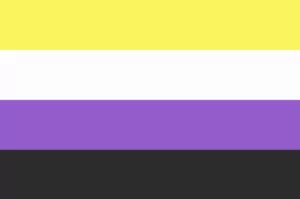What does Black History Month mean to you? It could be a time to recognise the achievements of the Black community, to draw attention to ongoing problems with racism, or an opportunity to stand as an ally of Black friends and colleagues. October is Black History Month in the UK, and this year, under the theme of “Saluting Our Sisters”, the event celebrates the critical role that Black women have played in shaping history, inspiring change, and building communities.
For a Special Edition of Payments Innovation, Product Manager Miada Hassan spoke to two Currencycloud colleagues, Director of Sales Development Fumbi Banjoko and VP of Banking Ola Malomo, who last year launched Currencycloud’s first Afro-Caribbean Employee Resource Group, Bl@CC (Black at Currencycloud).
Research shows that Black people make up 12% of the US workforce, but only 8% of employees in tech jobs. And while diversity has increased across the FinTech industry in the the number of Black people working in FinTech has remained static, at 3.1%, according to Tech Nation research.
Bl@CC began as a way for Black employees to network, share their experiences, socialise, and learn from each other. “Our mission is to empower Black colleagues globally and create a safe space for them where they can discuss anything – where they are included, where they feel supported – professionally and personally,” says Malomo. “It’s really a space for them to thrive in their careers at Currencycloud Visa.”
Recognising the perspective of the Black community
While Currencycloud marks Black History Month every year, not all companies do – or they recognise it in a cursory way, through a poster, for instance, rather than anything substantive, says Hassan, who feels it is important for organisations to acknowledge the event.
Banjoko agrees: “I think it makes Black employees feel appreciated by the company they work for,” she says. “It makes them feel included and also seen. It’s not just one month – you need to ensure that this happens throughout the year. But having an organisation that is committed to diversity and inclusion and actually does things during Black History Month to celebrate the Black culture is great. It also shows that they’re taking an active role in educating themselves as an organisation to understand the Black experience.”
For Malomo, that last point is key. “Bl@CC wasn’t started because our CEO or anyone at Visa said, ‘Hey you should do this, you should create this ERG,’” he observes. “It was grass roots – it came from the bottom up, and we were given that safe space to do so and encouraged to do so, and we were given the tools and equipment to make it a success. It speaks to the mindset of the organisation – it speaks to them really valuing diversity and inclusion, and I think that’s really what’s important.”
All three feel it is also vital for Black employees to see themselves reflected at every career stage in Fintech. “Representation matters,” says Banjoko. “If people don’t see themselves in an organisation, they’re less likely to join it. If everyone in junior roles tends to be Black, that’s a thing to address, as well.”
My mother, my hero
With this year’s Black History Month focusing on inspirational women, Banjoko and Malomo both chose their mothers as important figures in the Black community to celebrate.
“My mum moved to the UK fleeing the civil war in Nigeria when she was around eight years old,” says Banjoko. “She raised five of us single handedly, but she was also a carer. She fostered children and is a long-term carer for people with mental health and learning difficulties. So she is inspirational in the sense that she always wants to empower people and build people up and make them feel valued and not limited by their circumstances. It doesn’t matter where you’ve come from, you can always achieve.”
Malomo’s mother also moved to the UK from Nigeria, with three boys in tow. She found herself in a foreign country that was “frequently hostile to her,” says Malomo, “just because of the colour of her skin or her accent. As an adult, I can appreciate how challenging that would have been, but she did it with grace, she did it with style. She always leaves people smiling and feeling good about themselves. She’s full of wisdom, and there are a lot of sayings that she has which have and are influencing my life today.”
Empowering others to stand tall
If Black History Month gives the Black community the chance to become more visible, it’s also an opportunity for allies to continue to understand and support the Black community with the different struggles that they face on a day-to-day basis, says Banjoko.
“It’s a weird statement to make, but I’ve never really seen myself as Black in the workplace,” she observes. “I just turned up as Fumbi. I never thought about my race until 2020 happened, then the struggles of Black people became very apparent. It’s important to call out microaggressions. Call out when people touch your hair – little things like that, that people feel, I guess, entitled to do because they don’t realise that they’re impacting you. That would be the biggest career lesson I’ll give to my younger self. Continue to correct people and empower others to do the same.”
So how can Black professionals like Banjoko and Malomo – and employee groups like Bl@CC – support and encourage those following behind them? What would they say to young Black people starting out in their career?
“Find what you enjoy doing,” says Malomo, “and then find a way to do more of what you enjoy doing and be celebrated for that. And work hard – just always deliver.”
To ensure that you never miss an episode of Payments Innovation, subscribe on Apple Podcasts or Spotify.
Until next time!

